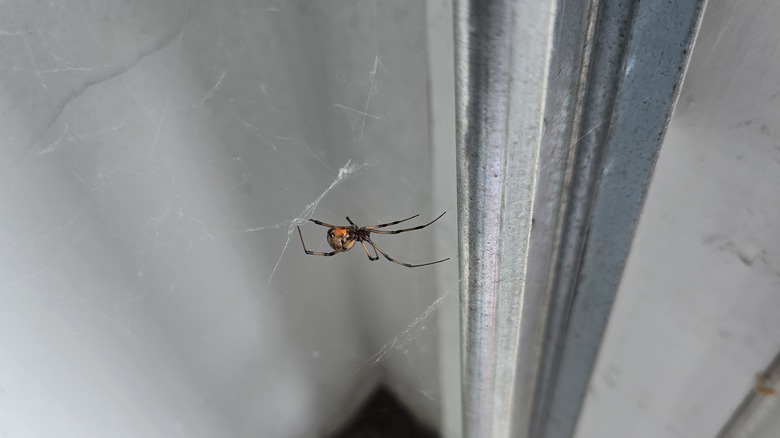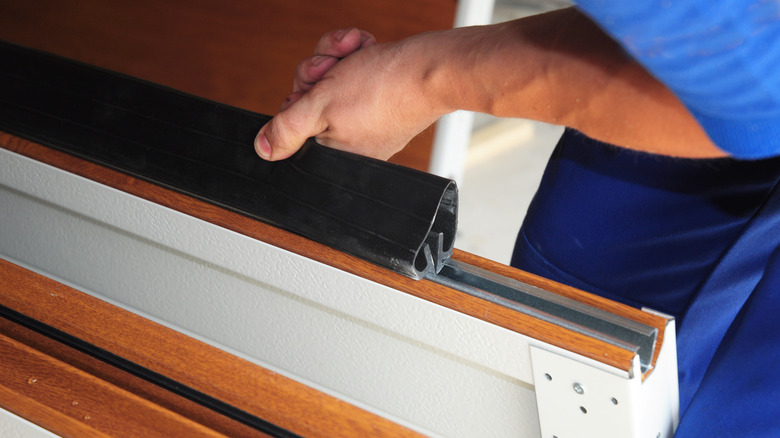Skip Using Spider Bombs In The Garage And Try This Chemical-Free Solution Instead
You might consider your garage to be the perfect place to park cars, store old holiday decorations, and keep unused bikes and lawnmowers. Spiders, on the other hand, might see your garage as the perfect place to move in, get cozy, and take permanent residence. While these eight-legged crawlers are good for the environment, and you probably shouldn't kill spiders in your home, that doesn't mean you have to welcome them into your garage with open arms. However, before you bust out the big guns, aka spider bombs, consider using a non-toxic approach to keeping spiders out of your garage — sealing all possible spider entryways with weatherstripping material or rubber seals.
It can be scary dealing with spiders in the home, and it's understandable that your first instinct might be to reach for a spider fogger, or spider bomb. However, that might not be the most effective way of dealing with spiders. Most spider bombs don't even work on spiders, and spiders are very good at hiding from the chemicals. On top of not working very well, spider bombs are very flammable, and their chemicals can be a problem for people with respiratory issues. By sealing up cracks, nooks, and crannies in your garage, you can keep spiders out before they become a problem and hopefully skip the need for poison altogether.
How to keep spiders out of your garage
To your eyes, your garage might seem impenetrable. To a spider's many eyes, there are a multitude of entryways. Gaps under the garage door, spaces along window frames, vents, and even tiny cracks in the concrete are all places spiders can use to come inside your garage.
An easy place to start is by tackling the gap under your garage door. Most garage doors have a bottom weatherstrip that is made of a piece of rubber or a similar material. Weatherstrips are intended to insulate the garage and keep pests out, but gaps can form in them over time. If there is a gap under your garage door, you may need to replace the weatherstrip, which will help keep pests out. In lieu of replacing the entire weatherstrip, which can be difficult to do without a professional, you can purchase a garage door seal strip, cut it, and glue it down to seal the gap.
Once you've handled the space under your garage door, take a lap around your garage and seal any other openings you find where spiders might come in by cutting pieces of weatherstrip or door seals and gluing them to the cracks. After all the cracks in your garage are sealed, spiders and other pests you might find lurking in your garage will have a much harder time getting in. If you want to keep your garage spider-free in the long term, try to keep it clean and organized. You can also try getting rid of spiders with these common household staples.

